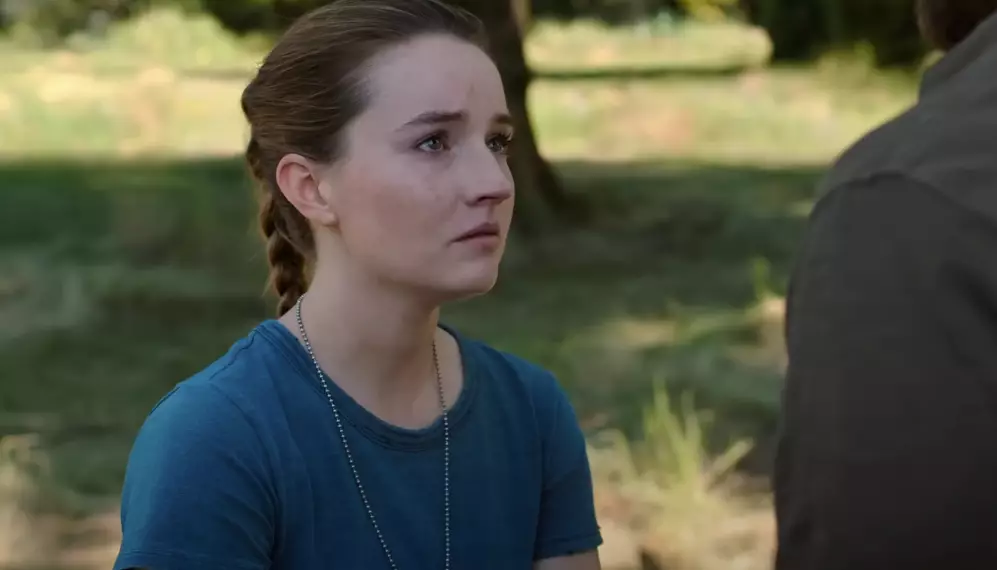The debut of The Last of Us Season 2 ignites an intense emotional discourse from the very start. Kaitlyn Dever’s portrayal of Abby is nothing short of gripping, encapsulating the essence of a character marred by loss. Abby’s chilling monologue—a fierce declaration of intent to seek out Joel and exact vengeance for the death of her father—sets a dark tone right from the first episode. Dever describes her character as a “chilly ice queen,” a portrayal that unveils the complex layers of sorrow and rage interwoven within Abby’s psyche. This initial moment frames the entire series and positions vengeance as the central theme of her storyline.
In this raw confession of her motives, Abby embodies the human condition’s darker sides—the overwhelming need for retribution when faced with immense grief. The stark desire for a slow, calculated revenge reveals a character deeply affected by her circumstances. This portrayal prompts the audience to reflect on the cost of such vengeance, elevating Abby’s role from mere antagonist to a tragic figure who is wrestling with the aftermath of personal loss.
The Conversation Surrounding Abby
The narrative surrounding Abby’s character has sparked fierce discussions among fans both in the gaming and television communities. When The Last of Us: Part II was released, Abby became a polarizing figure, with players debating her motives, identity, and the impact of her actions within the larger story. Dever acknowledges the conversations surrounding her role, yet she approaches her performance with a refreshing conviction to remain focused on her character’s journey rather than the opinions swirling around it.
Transforming into Abby without succumbing to external pressures reflects an impressive level of professionalism. Dever’s ability to channel Abby’s grief and anger while distancing herself from the backlash is commendable. This nuanced understanding translates into her performance and suggests a deliberate choice to prioritize authenticity over conformity to audience expectations. Her insight emphasizes the tension between artistic expression and public reception—a relevant challenge for any actor stepping into a role that is bound to stir controversy.
Building Trust with Creators
The chemistry between Dever and the show’s creators, Craig Mazin and Neil Druckmann, highlights the collaborative essence that fuels The Last of Us. Dever, initially considered for the role of Ellie, found herself stepping into the complex shoes of Abby without the traditional auditioning process. This leap of faith underscores the confidence the creators had in her abilities, showcasing their commitment to finding the right fit for their characters without relying on conventional audition norms.
Notably, the creators’ assurance allowed Dever to immerse herself in Abby’s character freely. Their faith served as a safety net that fostered creativity and exploration within the role, facilitating an environment where she could delve deep into Abby’s emotional struggle. Such narratives reinforce the importance of trust in creative collaborations, particularly in adaptations where previous character portrayals generate heightened scrutiny.
A Record-Breaking Premiere
The powerful debut of Season 2, amassing 5.3 million viewers, demonstrates not only the show’s popularity but also the audience’s demand to witness Abby’s tumultuous journey. Such numbers indicate that viewers are not just invested in the plot but are also eager for character-driven narratives that resonate on personal and emotional levels. With its intriguing lead-in, the season undoubtedly establishes itself as a captivating exploration of themes surrounding loss, revenge, and the long-lasting impact of violence.
As new episodes unfold each Sunday, viewers can anticipate a rich tapestry of storytelling driven by the exploration of complex characters like Abby. The narrative promises to push boundaries and challenge perceptions of morality in a world consumed by despair and vengeance, inviting audiences to ponder how grief can shape even the most drastic of decisions.
In essence, the audience’s investment in Abby’s vengeance—and the emotional resonances that come with it—portrays The Last of Us as more than just a story of survival; it is a profound exploration of human emotion, morality, and the shadows that revenge casts upon the soul.


Leave a Reply